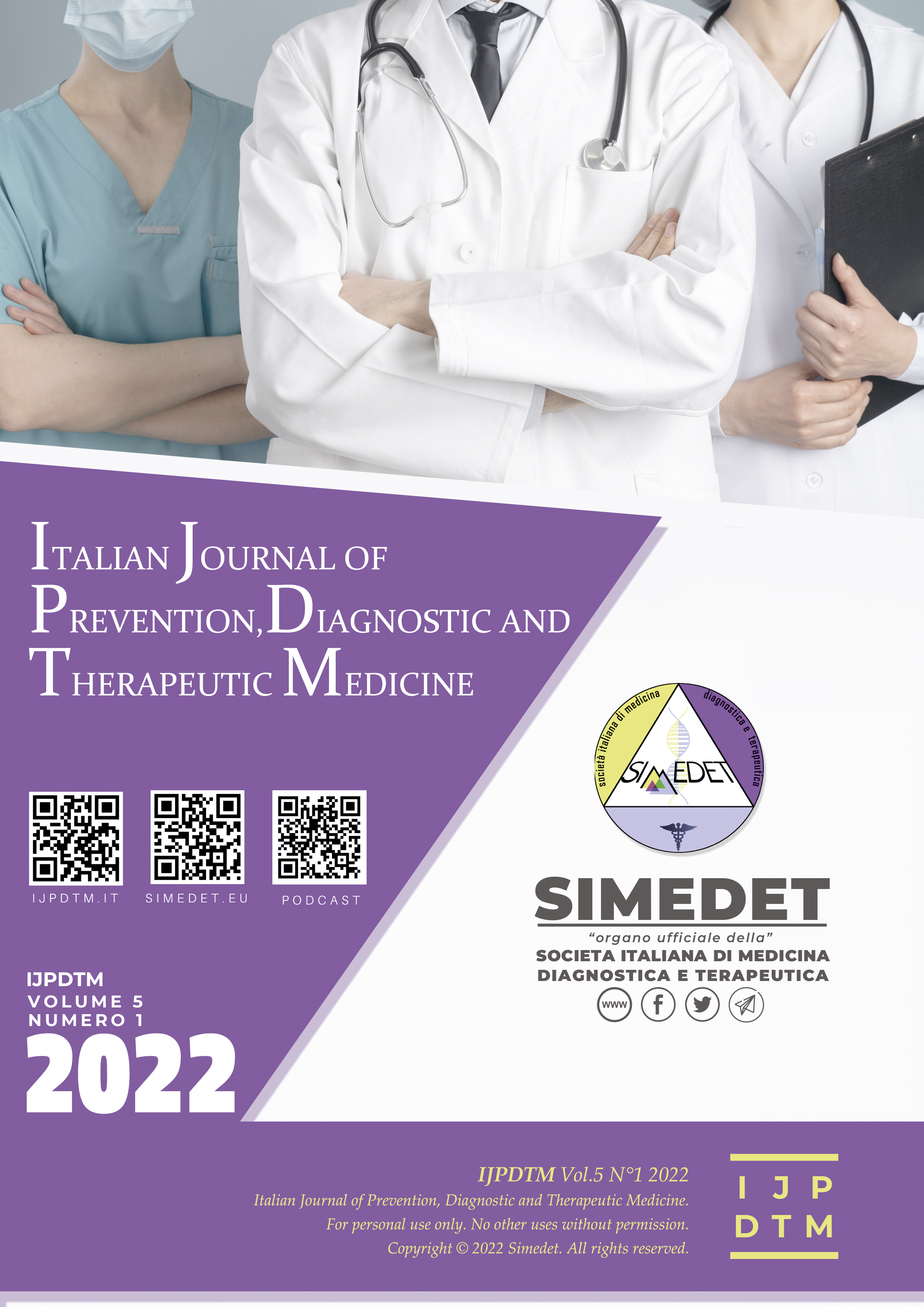Impact of COVID-19 on the mortality rates for the resident population of the Umbria region in Italy
Contenuto principale dell'articolo
Abstract
Background: Mortality surveillance provides a crucial method for monitoring disease activity. Coronavirus disease 2019 (COVID-19) can cause excess mortality both directly and indirectly by increasing deaths from other diseases. The aim of this study was to investigate the effects of COVID-19 on mortality in Umbria ( Italy).
Objectives: In this paper, we have discussed the mortality figures in the Umbria region after analyzing the data from the national Health registry between December 2019 to April 2020; the period of infection and its comparison with the data from previous five years.
Methods: The factors governing these figures were studied including temperature, standard mortality rates, territorial distribution, death due to all cases as well as the non-covid deaths. A cross-sectional retrospective analysis of mortality data from 1 december 2019 to 30 April 2020 was undertaken.Baseline mortality estimated using the Farrington flexible model and excess mortality were calculated for the pandemic period according to cause of death, place of death and age group.
Conclusion: A sharp increase in mortality figures was observed for the month of march and low temperature also had a role to play. However, the difference when compared to previous 5 years was not significant as was expected at the start of the study. A single factor cannot be responsible for the total mortality figures in a region as is frequently predicted.
Downloads
Dettagli dell'articolo

Questo lavoro è fornito con la licenza Creative Commons Attribuzione - Non commerciale - Non opere derivate 4.0 Internazionale.
Riferimenti bibliografici
2. F. Shilling, D. Waetjen Special Report (Update): Impact of COVID19 Mitigation on Numbers and Costs of California Traffic Crashes. Road Ecology Center. University of California Davis (2020). available on
https://roadecology.ucdavis.edu/files/content/projects/COVID_CHIPs_Impacts_updated_415.pdf (last accessed 29 March 2021)
3Al Wahaibi A, Al-Maani A, Alyaquobi F, et al . Effects of COVID-19 on mortality: A 5-year population-based study in Oman. Int J Infect Dis. 2020 Dec 23;104:102-107.
4. Ma Y, Zhao Y, Liu J, et al. Effects of temperature variation and humidity on the death of COVID-19 in Wuhan, China. Sci Total Environ. 2020 Jul 1;724:138226.
5. Max Roser, Hannah Ritchie, Esteban Ortiz-Ospina and Joe Hasell (2020) - "Coronavirus Pandemic (COVID-19)". Published online at OurWorldInData.org. Available on 'https://ourworldindata.org/coronavirus' [last accessed 29 March 2021]
6. INAIL: https://www.inail.it/cs/internet/home.html and ISTAT. Available on https://www.istat.it/ [last accessed 29 March 2021]
7 Paciullo F, Giannandrea D, Gianfredi V, et al. Epidemiology of emergency calls for time-dependent acute illnesses during COVID-19 outbreak in Umbria region (Italy). Ann Ig. 2021 Mar-Apr;33(2):198-200.

